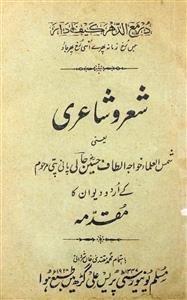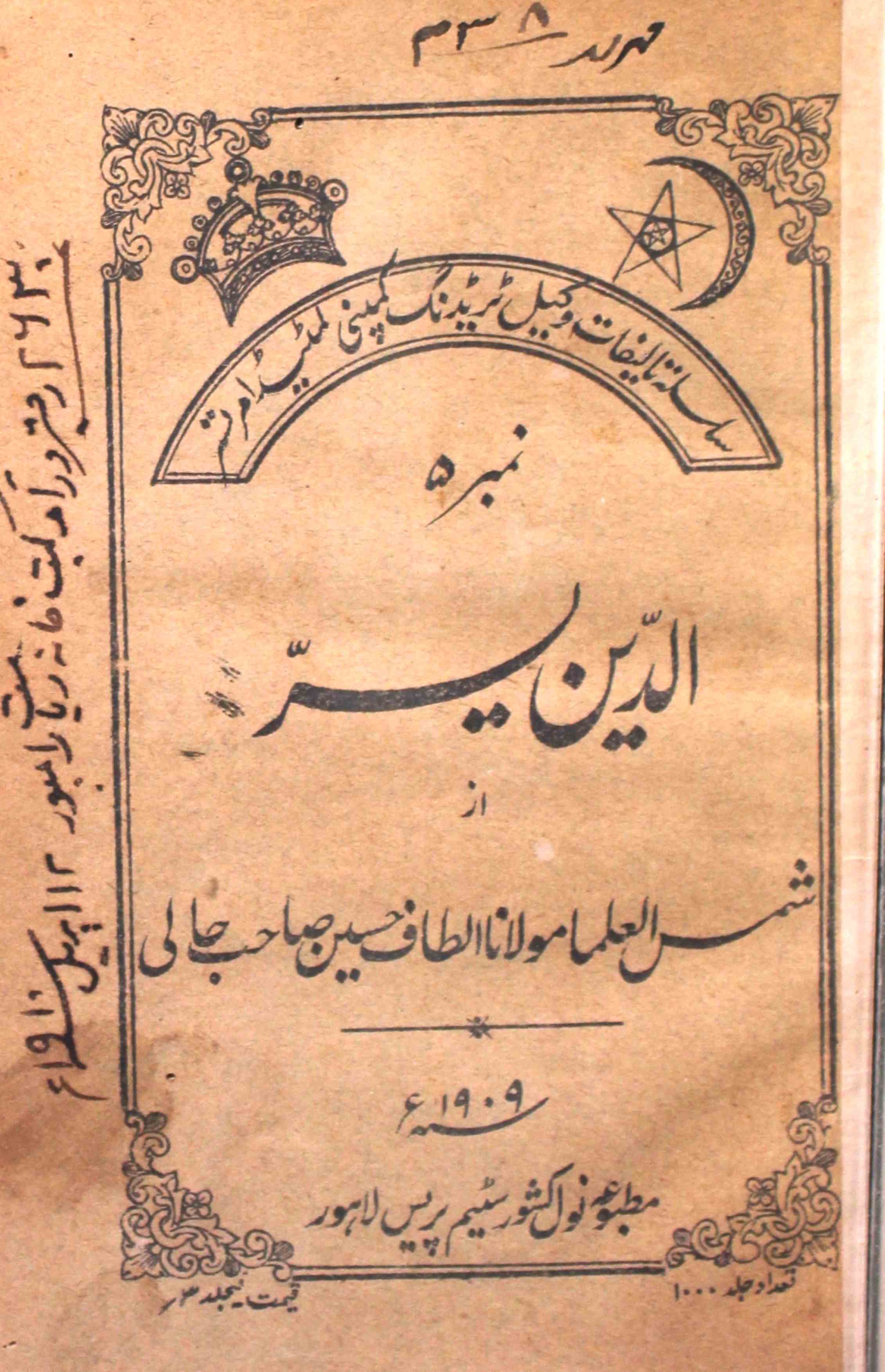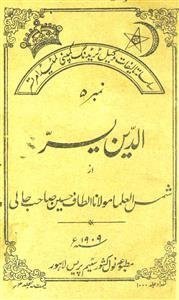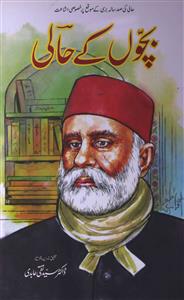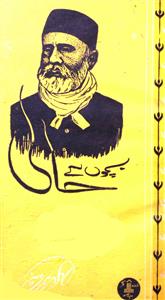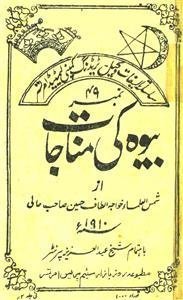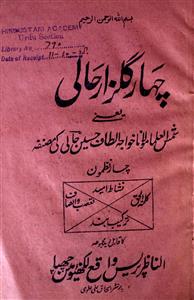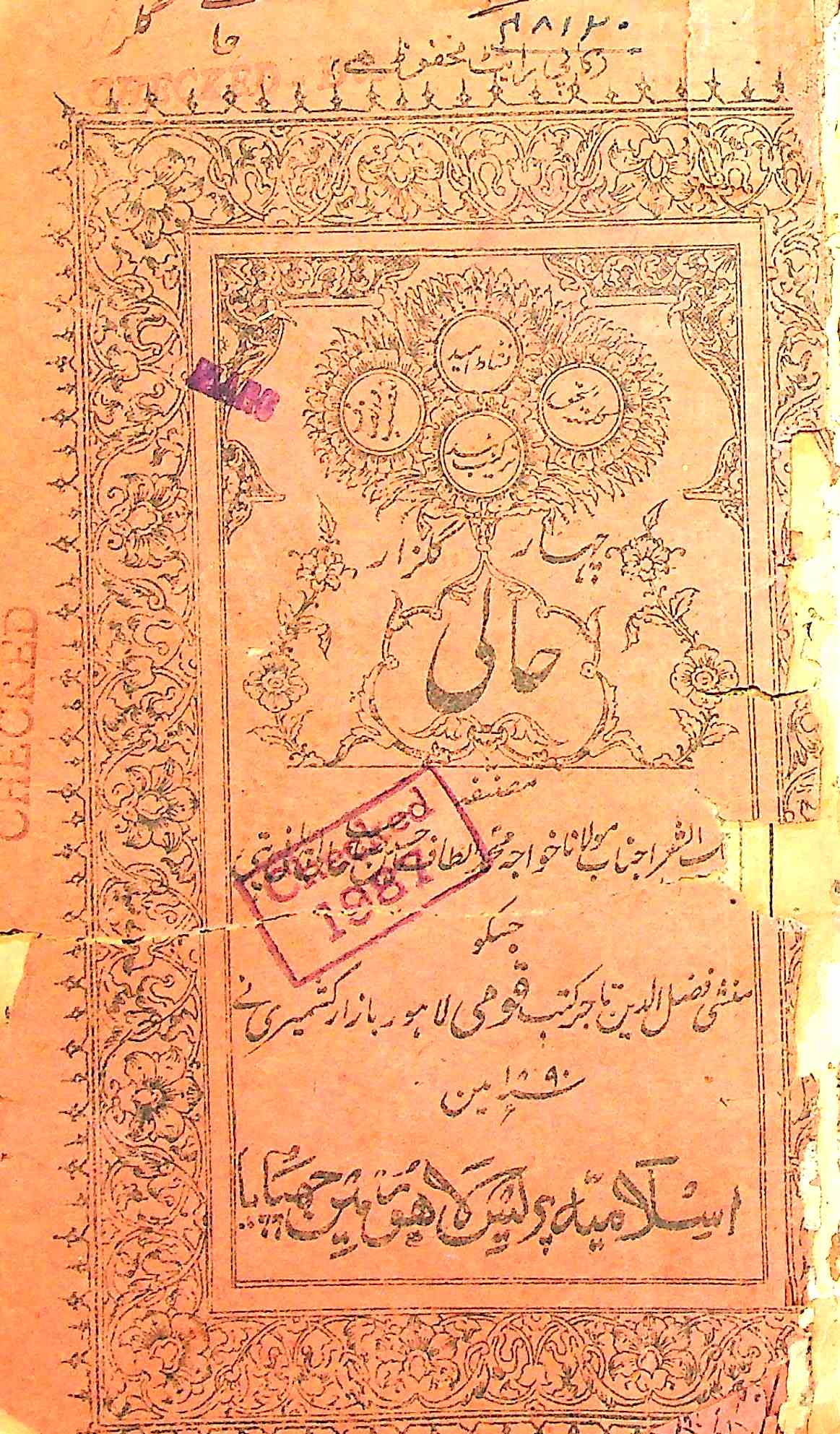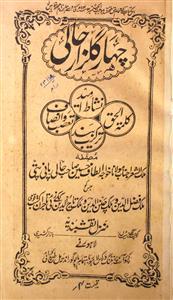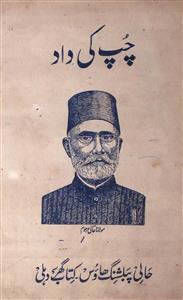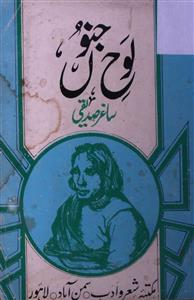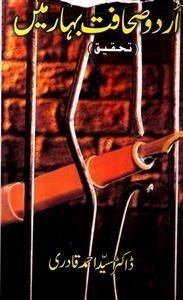 For any query/comment related to this ebook, please contact us at haidar.ali@rekhta.org
For any query/comment related to this ebook, please contact us at haidar.ali@rekhta.org
About The Book
حالی کو جدید اردو تنقید کا معمار اول اور "مقدمہ شعر و شاعری" کو تنقید کا صحیفہ اول سمجھا جاتاہے۔ حالی کا جب دیوان چھپ کر منظر عام پر آیا تو اس پر ایک مبسوط اور معرکۃ الآرا مقدمہ بھی لکھا گیا۔ اول اول اس مقدمہ پر اعتراضات کی باڑھ آئی مگر آہستہ آہستہ ایک وقت وہ بھی آیا کہ وہی مقدمہ ایک کتاب کی شکل اختار کر گیا اور حالی اردو ادب کی جدید تنقید کے بانی قرار پائے۔ اور اردو ادب پڑھنے والے ہر طالبعلم کی توجہ کا مرکز بن گئے۔ حالی کا مقدمہ پڑھ کر یوں محسوس ہوتا ہے کہ کہیں نہ کہیں سر سید تحریک اس کے پیچھے کار فرما ہے۔ حالی اردو ادب کے وہ پہلے نقاد ہیں جنہوں نے باضابطہ طور پر اردو تنقید کے اصول مرتب کئے۔ "مقدمہ شعر و شاعری" میں اصول شعر و شاعری سے بحث کی گئی ہے۔ حالی نے ادب کے تقاضے کو دیکھتے ہوئے "ادب برائے ادب" اور "ہنر برائے ہنر" جیسے قدیم نظریہ کی نفی کی اور اس کی جگہ پر "ادب برائے زندگی" کے نظریہ کو فروغ دینے کی کوشش کی ہے۔ اور ان دونوں نظریوں کا منبع کہیں نہ کہیں ارسطوئی اور افلاطونی نظریے سے ملتا ہے۔ کیوں کہ "ہنر برائے ہنر" کا نظریہ ارسطو کے نظریہ تنقید کی بنا ہے۔ اور چونکہ افلاطون ادب میں مقصدیت کا قائل ہے اس لئے اس نے ادب برائے زندگی کے نظرئے کو فروغ دیا اور اس کے چلتے اس نے اپنی بہت سی تحریریں جلا ڈالیں۔ دوسرا فرق یہ بھی ہے کہ حالی مذہبی انسان تھے اس لئے کہیں نہ کہیں ان کا نظریہ فلاسفہ الہیین سے قریب تر ہوگا اور الہیین ہمیشہ افلاطونی نظریہ کے ہمنوا نظر آتے رہے ہیں۔ اس کے مقابلہ میں فلاسفہ مشائیین کا نظریہ ارسطوئی نظریہ سے قریب تر ہے اور علامہ شبلی نعمانی بھی فلسفہ مشائیین کے طرفدار ہیں اسی لئے جب وہ نقد یا شعری محاسن شمار کراتے ہیں تو کہیں نہ کہیں وہ حالی کے بہت سے نظریوں کی مخالفت کرتے ہوئے نظر آتے ہیں اور وہ ادب برائے ادب اور ہنر برائے ہنر کے نظریہ کے قائل ہیں۔ حالی نے اپنے اس مقدمہ میں شاعری کے لئے تین شرطیں قرار دی ہیں۔ وہ کہتے ہیں اچھی شاعری کی خوبی یہ ہے کہ اس میں "سادگی" ہونی چاہئے۔ یعنی کلام کو آسان تخیل اور آسان الفاظ کے ذریعہ ادا کیا جائے تاکہ قاری لفظوں کے پیچ و تاب میں الجھ کر نہ رہ جائے اور اس کا مقصد کلام تک پہنچنے میں دشواری کا سامنا کرنا پڑے اور فوت ہو جائے۔ دوسرے کلام میں "جوش" ہونا چاہئے۔ یعنی شعر میں بے ساختگی اور جذباتیت ہونی چاہئے تا کہ قاری کے جذبات کو برانگیختہ کر کے ایک مثبت عمل کی طرف رغبت دلائے اور وہ اشعار کو بے ساختہ کہنے پر قادر ہو یہ خصوصیت نظامی عروضی سمرقندی نے بھی چہار مقالہ میں بیان کی ہے۔ تیسرے "اصلیت" ہونی چاہئے۔ یعنی کلام میں مبالغہ اور مجازیت نہیں ہونی چاہئے بلکہ جوں کا توں بیان ہونا چاہئے۔ حالی کی اس خاصیت سے کوئی بھی متفق نظر نہیں آتا، کیوں کہ انہی کے معاصر علامہ شبلی اس خصوصیت کو شعر کے لئے بہت ہی ضروری اور موثر مانتے ہیں۔ بہتوں نے حالی کو ملٹن سے متاثر بتایا ہے اور بہتوں نے ان پر سرقے کا الزام بھی لگایا ہے۔ ان سب سے قطع نظر حالی نے اردو ادب کو ایک نئے فن سے آگاہ کرایا ہے جس کے گام پر آگے چل کر اردو ادب نے اپنے تنقیدی اصول مرتب کئے ہیں۔
About The Author
Khwaja Altaf Hussain Hali (1837-1914) was born in Panipat, where he also received his early education. On coming to Delhi, he learnt Arabic and Persian and received patronage from two major poets, Ghalib and Shefta. After Shefta’s death, he left for Lahore and joined Punjab Government Book Depot where he got an opportunity to read Western literature. Hali paid serious heed to Mohammad Hussain Azad’s call for the new Urdu poem and Sir Syed Ahmad Khan’s call for rationalism in social, political and educational matters of the Muslims in particular. These two influences determined his future course of development as a poet, critic, commentator, biographer, and translator.
Hali started writing as a poet of the traditional Urdu ghazal. Later, he initiated a more serious phase of his literary career which also marked the beginning of modernism in Urdu literature. He made a major case for simplicity of expression and seriousness of thought and purpose. His engagement with the writing of ameliorative poetry explains his distaste for panegyric and ghazal which, he argued, could no longer sustain the burden of new consciousness. Instead, he emphasized upon the contemporary relevance of narrative poetry and made a case for ‘natural poetry’, shorn of sentimentality and based in reality. While Hali wrote in various forms, he developed a composite view of life and art in close association with each other. His Muqaddama-i-Sher-o-shairi is, in many respects, the first critical manifesto of Urdu poetry like Wordsworth’s ‘Preface’ to the Lyrical Ballads that laid the critical parameters for the early nineteenth century Romantic poetry in English. Hali developed a serious discourse in his Muqaddama which is valued as an anthology of ideas concerning the nature of true art, its language, the parametres of its creation, and the making of taste. In Madd-o-jazar-e Islam, he reflected upon the rise and travails of Islam. In Tiryaaq-e Masmoom, he developed a discourse on religious disputation, in Majaalisu-n-Nisa, he projected an argument in favour of womens’ education in a fictional framework. Tabaqaat-ul Arz is his translation of an Arabic discourse. Hali wrote sober and scientific prose, plain and persuasive poetry, broadly representing the case of art for life’s sake. Hali‘s biographies of Sir Syed, Ghalib, and Persian poet Sadi remain authentic sources till this day.
 For any query/comment related to this ebook, please contact us at haidar.ali@rekhta.org
For any query/comment related to this ebook, please contact us at haidar.ali@rekhta.org
